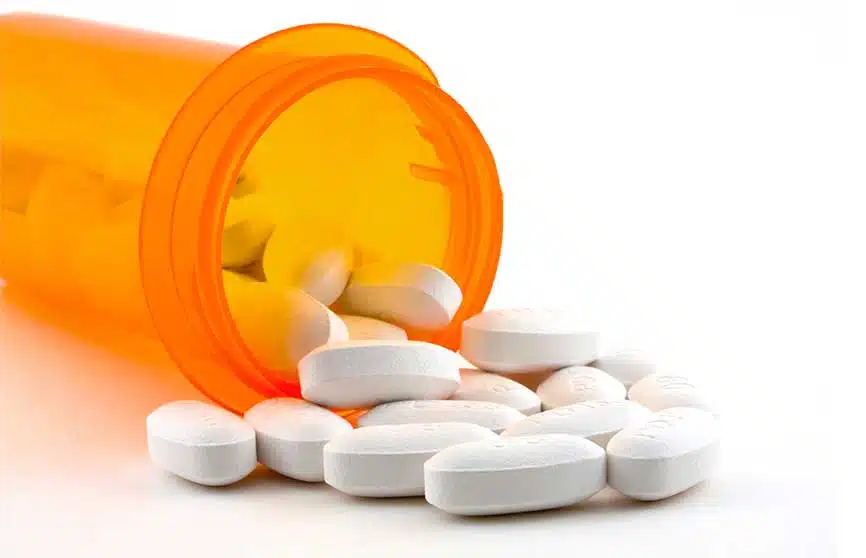The Top 8 Most Commonly Abused Prescription Drugs

In the United States, 66% of adults use prescription medications. These drugs can help treat a wide variety of medical problems. Unfortunately, some people abuse them.
Prescription drug abuse occurs when you use a drug in a manner not prescribed. For instance, you might mix it with alcohol, take extremely high doses, or take it without a prescription. Here are eight of the most frequently abused prescription drugs.
1. Opioids
Opioids are powerful painkillers that treat moderate to severe pain. As central nervous system depressants, they slow down your brain activity. Some of the most popular prescription opioids include oxycodone (OxyContin or Percocet), hydrocodone (Norco or Vicodin), and codeine.
Along with easing pain, opioids can also cause relaxation and euphoria (intense joy). That’s why some people abuse them. Opioid abuse can have serious side effects, including extreme drowsiness, confusion, and slowed breathing. In some cases, your breathing may slow to the point of a fatal overdose.
People who abuse opioids also face a high risk of addiction. Indeed, prescription opioids can be just as addictive as the illegal opioid heroin.
2. Benzodiazepines
Often called “benzos,” benzodiazepines treat anxiety, insomnia, and seizures. The most commonly prescribed benzodiazepines include alprazolam (Xanax), clonazepam (Klonopin), and diazepam (Valium).
Like opioids, benzodiazepines slow down brain activity, which can make you feel happy and relaxed. People who abuse benzodiazepines may face a variety of health issues, including:
- muscle weakness
- slurred speech
- memory problems
- slowed breathing and/or heartbeat
- overdose, especially if you mix benzodiazepines with other central nervous system depressants, such as opioids or alcohol
Benzodiazepine abuse can also lead to physical dependence. That means your body starts relying on benzodiazepines to function normally. If you stop using them, you may experience withdrawal symptoms such as nausea, anxiety, and depression.
3. Amphetamines
Prescription amphetamines are used to treat attention-deficit/hyperactivity disorder (ADHD) and narcolepsy (a sleep disorder that causes excessive daytime sleepiness). Examples include amphetamine (Adderall), dextroamphetamine (Dexedrine), and lisdexamfetamine (Vyvanse).
As stimulant drugs, amphetamines speed up your central nervous system, helping you stay awake and focused. Many college students abuse amphetamines to boost their academic performance. In fact, these medications are often called “study drugs.”
People who abuse prescription amphetamines face health risks such as:
- trouble sleeping
- loss of appetite, which can lead to malnourishment (an unhealthy amount of weight loss).
- irritability and aggressiveness
- anxiety and panic
- psychosis (a loss of connection with reality that may involve paranoia, delusions, and hallucinations)
- increased blood pressure and body temperature
- cardiovascular problems, including irregular heartbeat, heart attack, and stroke
- addiction
4. Methylphenidate
Like prescription amphetamines, methylphenidate is a stimulant that can help treat ADHD and narcolepsy. It’s often sold under the brand names Ritalin and Concerta.
People abuse methylphenidate for the same reasons they abuse prescription amphetamines. In other words, they use the drug to boost their energy, alertness, and concentration.
Unfortunately, like amphetamine abuse, methylphenidate abuse poses serious risks, including anxiety, psychosis, cardiovascular problems, and addiction.
5. Dextromethorphan
Dextromethorphan (DXM) eases coughing caused by the common cold or the flu. While some doctors prescribe the drug in pill form, it’s also found in many over-the-counter cough syrups, such as Robitussin.
At high doses, DXM can cause euphoria and hallucinations. Some people, especially young people, try to induce these effects by abusing cough syrup that contains DXM. This practice is often called “Robotripping.” It’s linked to problems such as:
- nausea and vomiting
- paranoia
- severe anxiety
- confusion
- aggressiveness and violence
- overdose, which can cause seizures and loss of consciousness
- addiction
6. Zolpidem
Sold under the brand name Ambien, zolpidem is prescribed to treat insomnia. It belongs to a class of medications called sedative-hypnotics.
Some people abuse zolpidem to experience euphoria. Zolpidem abuse can lead to health problems such as:
- nausea
- stomach pain
- uncontrollable shaking of a part of the body
- pain the arms
- blurry vision
- chest pain
- swelling of the eyes, face, lips, tongue, or throat
- loss of consciousness
- slowed breathing or heartbeat
- physical dependence
7. Barbiturates
Barbiturates are sedative-hypnotic medications that were once used to treat a variety of conditions, including anxiety, seizures, and muscle spasms. Today, they are only used in rare cases, as they pose a high risk of abuse, addiction, and overdose. Other risks include:
- nausea and vomiting
- low body temperature
- muscle weakness
- confusion
- loss of consciousness
- trouble breathing
The most common barbiturates include amobarbital (Amytal), pentobarbital (Nembutal), and phenobarbital (Luminal).
8. Antidepressants
Antidepressants are medications used to treat certain mental health conditions, including major depressive disorder, obsessive-compulsive disorder (OCD), and post-traumatic stress disorder (PTSD).
While antidepressant abuse is less common than other types of prescription drug abuse, it still happens, especially among people with a history of substance abuse.
Potential risks of antidepressant abuse include:
- dizziness
- headache
- sexual dysfunction
- emotional numbness
- confusion
- serotonin syndrome, which can be fatal
- physical dependence
If you or someone you love misuses prescription drugs, please reach out to Spring Hill Recovery Center. Nestled in the peaceful woodlands, our substance abuse and addiction treatment programs offer personalized, evidence-based services to keep you or your loved one healthy.
- Dove Medical Press — Abuse and misuse of antidepressants https://www.ncbi.nlm.nih.gov/pmc/articles/PMC4140701/
- Drug Enforcement Administration https://www.dea.gov/sites/default/files/2020-06/Amphetamines-2020_0.pdf
- Drug Enforcement Administration https://www.dea.gov/sites/default/files/2020-06/Benzodiazepenes-2020_1.pdf
- Georgetown University https://hpi.georgetown.edu/rxdrugs/
- National Institute on Drug Abuse https://nida.nih.gov/sites/default/files/rx_drugs_placemat_508c_10052011.pdf
- National Library of Medicine: MedlinePlus https://medlineplus.gov/ency/article/000951.htm
- National Library of Medicine: MedlinePlus https://medlineplus.gov/druginfo/meds/a682492.html
- National Library of Medicine: MedlinePlus https://medlineplus.gov/druginfo/meds/a693025.html


